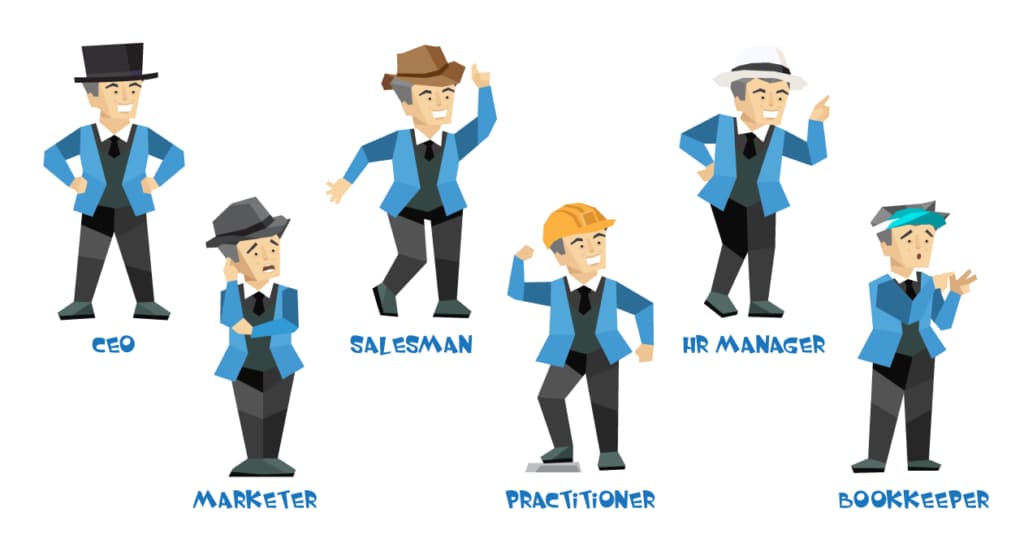Employers and employees both agree that continuous learning can have a positive impact on employee wellness and career advancement, as well as improving workplace culture and, best of all, your business’s bottom line.
“The vast majority of U.S. workers say that new skills and training may hold the key to their future job success,” according to a Pew Research Center survey.
That survey, taken before the pandemic, found that economic change was reshaping the workplace with employment rising faster in occupations requiring more preparation, and that most workers see continuous training as essential to career success.
Small Businesses Must Prioritize Continuous Learning
In today’s historically tight labor market, businesses, especially small businesses, need to prioritize continuous learning.
“The bottom line is that if small businesses want to stay competitive and bring in the same level of talent as larger companies, they must commit to employee development with continuous education. And when they do, they’ll bring in stellar employees who are eager to learn and perform at the top of their potential,” wrote Jennifer Dixson Hoff in Entrepreneur.
The numbers back Dixon Hoff on the importance of continuous learning:
- An IBM study predicted that more than 120 million workers across the world’s 12 largest economies will need reskilling or retraining as new technologies widen the skills gap
- LinkedIn’s 2021 Workplace Learning report says 76 percent of Gen Z and 61 percent of millennials think “learning is the key to success” in their careers.
- World Economic Forum report says that rapid acceleration of automation and economic uncertainty caused by the pandemic will shift the division of labor between humans and machines, causing 85 million jobs to be displaced and 97 million new ones to be created by 2025.
What Exactly is Continuous Learning?
Mental health advocate and blogger Ashley Aldrin defines continuous learning as professional development where employees are given the opportunity to learn simultaneously while they work.
“It is ensuring that your team develops the habit of acquiring skills, knowledge, and abilities to help them become better at their jobs,” writes Aldrin. “Continuous learning is most effective when the individual has a desire to learn and grow. While you can launch initiatives that can encourage continuous learning, it is most effective when an employee is enthusiastic and ready to absorb new information.”
Among examples of continuous learning cited by Aldrin:
- Encouraging employees to take upskilling opportunities
- Introducing bi-annual 360 reviews
- Education opportunities such as online degree distance learning
- Personal development of soft skills such as communication and critical thinking
Benefits of Continuous Learning in the Workplace
Time and money invested in continuous learning digital training such as learning-management software (LMS) are resources well utilized as they encourage employee retention, employee development and can have a positive effect on your businesses’ bottom line.
Employer Flexible has found through experience that continuous learning can provide multiple benefits for your workplace, including:
- Competitive Edge: Establishing a culture of well-informed employees, especially regarding the latest technology trends and industry standards, can keep your business positioned ahead of your competition.
- Lower Stress, Higher Productivity: Encouraging education and learning in tandem with their job gives employees the freedom to learn and grow without added stress. For employers, the payoff is greater productivity.
- Defines Career Paths: Helping employees explore, via in-house learning, possible new job opportunities within your company can not only help define their career path but also bolster your employee retention strategy.
- Collaborative Culture: Your workplace culture improves when employees and management work in a collaborative atmosphere. Continuous learning programs encourage this collaborative esprit de corps.
Aldrin argues that encouraging continuous learning not only improves employee retention but can help prepare your employees for senior positions.
“The great thing about continuous learning is that it allows your employees to constantly improve their knowledge and skill set, subsequently preparing them for a senior position in your organization,” writes Aldrin.
Employer Flexible can help your company develop a comprehensive HR Roadmap that includes training and development programs, both in-person and online.
Contact Employer Flexible about how we can tailor a comprehensive HR plan that fits your specific needs.






